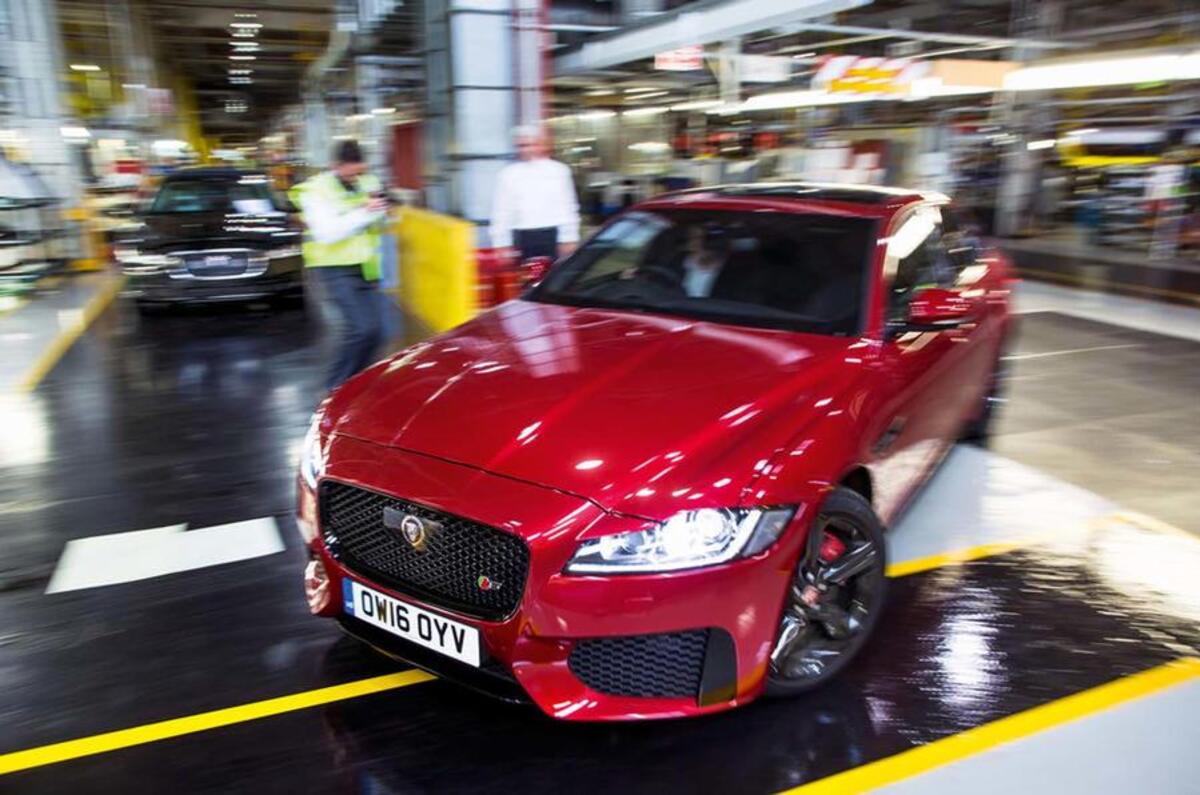UK car manufacturing grew by 3.5% to 157,056 units in October in the face of a continued decrease in demand from the domestic market.
Demand from British customers was down by 2.9% to 28,178 units across the four weeks, but a 5% boost in exports helped to ensure overall growth. In total, 157,056 cars rolled off UK production lines. For the year-to-date, this is a 6.8% decrease, which equates to about 22,000 cars.
Society of Motor Manufacturer and Traders boss Mike Hawes labelled economic uncertainty over Brexit and the government’s air quality plans as the key cause for the fall in UK demand.
“It's important that confidence is restored to the new car market, as sales of the latest cleaner, greener cars not only address air quality concerns but speed up activity on factory lines across the UK,” he said.
For the year-to-date, UK demand is down by 6.8%, which equates to about 22,000 cars. Foreign demand has fared better, with 1.1 million cars having been exported so far in 2017 – although this is still 1.6% down on the same point last year.
The results have caused the SMMT to lower its forecast for Britain’s 2017 output from 1.8 million to 1.73 million. Along with the fall in domestic demand, the SMMT said a decrease in output for certain models that are reaching the end of their life cycles contributed to the lowered prediction.
“The latest independent UK forecast report is worrying news for the sector, predicting annual output which is, at best, static compared with last year,” said Hawes. “The industry needs stability and a clear roadmap for Brexit if we are to encourage investment and arrest the decline in both the market and business confidence."
The UK’s Autumn Budget was announced yesterday with a new tax hike for diesel vehicles that don’t meet next-generation Real Driving Emissions step 2 standards, which won't become a legal requirement until 2020. The change is expected to push diesel vehicle demand down further, with sales already having declined by 29.9% in October.
More content:
The end of car production in Australia: what went wrong?
Driving the Land Rover Discovery to JLR's new Slovakian plant





Join the debate
Add your comment
Boring designs
Perhaps a lot of the new cars for sale in the UK just aren't that exciting to make them worth buying.
Car sales were artifically
Car sales were artifically high before thanks to all those cheap finance deals.
Add in diesel uncertainty plus the decline in living standards, it's not surprising that domestic sales have dropped
Tax uncertainty
The UK is the Germans largest export mark and the EUs second biggest consumer.
We produce a lot of components as well as cars making falls in the pound advantageous. Adapt or fail.